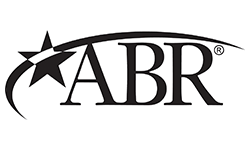Glossary of Common Real Estate Terms
Click on a term below for a definition…
A closing statement is an accounting of the funds received and distributed in a real estate transaction.
A letter issued by the lender to the applicant that states funds will be provided subject to written terms and conditions.
Comps are used in assessing or establishing the fair market value of a property, a property which has been sold recently that is similar in size, condition, location and amenities.
Contingency is a condition in a contract relieving a party of liability if a specified event occurs or fails to occur.
A counter-offer is a new offer made by either the buyer or seller when rejecting a previous offer.
Deed in lieu of foreclosure is the conveyance of title to the mortgagee by a mortgagor in default to avoid a record of foreclosure.
Deficiency judgment is a court judgment obtained by a mortgagee for the amount of money a foreclosure sale proceed was deficient in fully satisfying the mortgage debt.
Discount points are a one-time payment by the borrower to the lender at closing to obtain a lower interest rate on the mortgage loan. One point equals 1% of the loan amount; therefore, two points on a $100,000 mortgage would cost $2,000. It is also referred to as points.
The down payment is the amount of money a buyer pays upfront in order to purchase a property. It is usually paid at the signing of the contract in the form of a certified check. The amount is typically 10% of the sales price.
A dual agent is a broker or salesperson who represents both the buyer and seller in the same transaction.
Due diligence is the investigation and review of a property to determine any legal liability. This can also be a fee for the time span of due diligence.
Earnest money deposit is the deposit a buyer makes at the time of submitting an offer to demonstrate the true intent to purchase. It is also called a binder or good faith deposit.
An executed contract is an agreement that has been fully performed. All parties have signed.
Foreclosure is an enforcement process in which the lender under a defaulted mortgage takes title to the property for the purposes of selling it to recoup moneys owed under the mortgage.
A Good Faith Estimate is an estimate of the fees a mortgage borrower will be required to pay at closing. It is required by Federal law that the lender provides the Good Faith Estimate within three business days of the initial loan application.
A pre-approval is a process in which a conditional commitment is issued after a loan profile is underwritten with all standard documentation except a property appraisal and a title search.
A pre-qualification is a process in which a loan officer calculates the housing-to-income ratio and the total debt-to-income ratio to determine an approximate maximum mortgage loan amount.
In mortgage lending, underwriting is the decision-making process used to determine whether the loan risk is acceptable to the lender. Underwriting involves the satisfactory review of the property appraisal and examination of the borrower’s ability and willingness to repay the debt and sufficiency of collateral value of the property.
This is the Real Estate agent who has an employment contract – ( listing contract ) with the sellers.
This is the Real Estate broker who has been employed to work for the buyer- this contract must be in writing prior to writing up an Offer to Purchase
This is when a Real Estate Professional is working for both the buyers and the sellers.
There is a primary contract in place and the seller is looking for a 2nd buyer –this is not unusual if there are contingencies in the primary contract.




